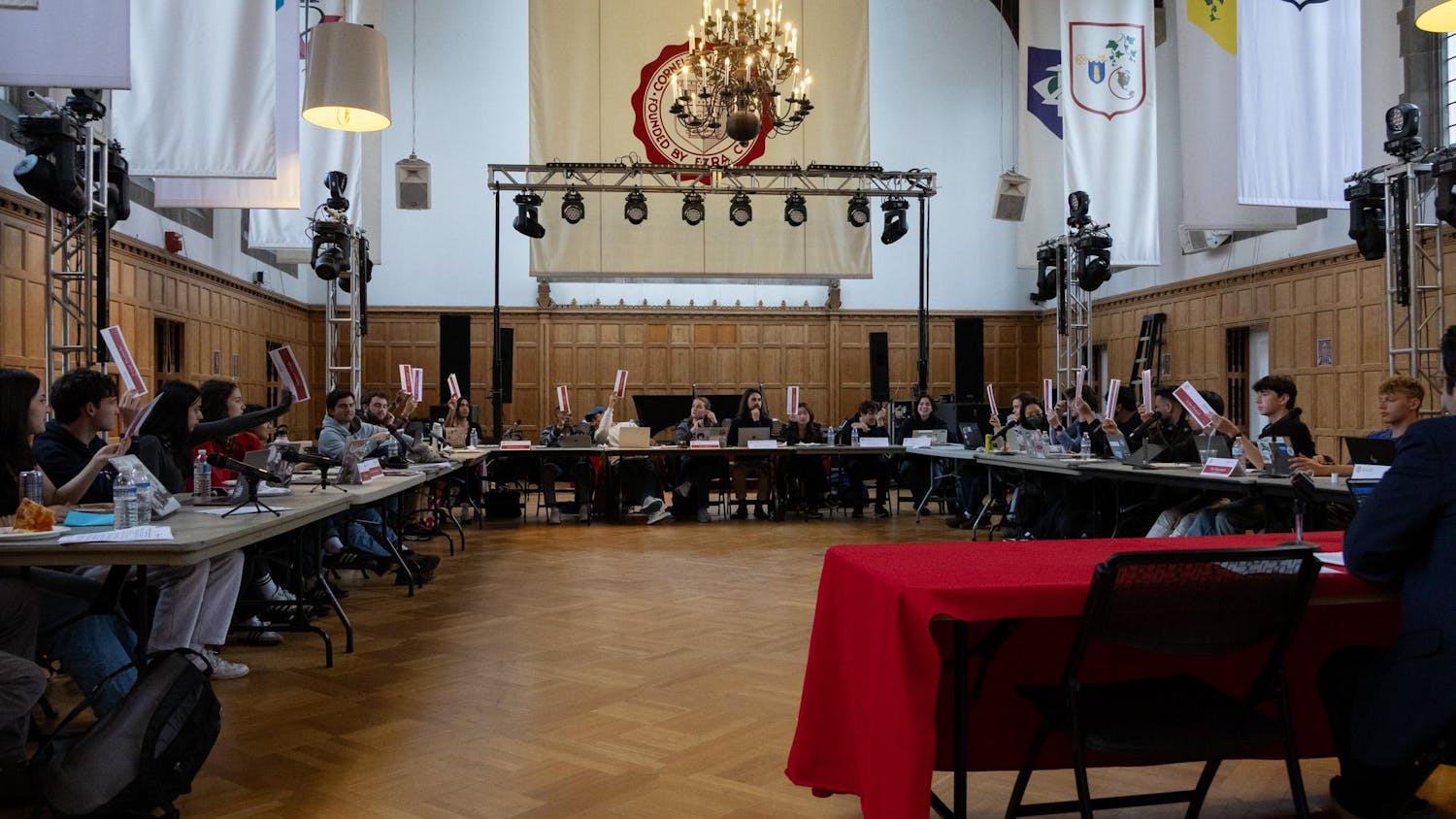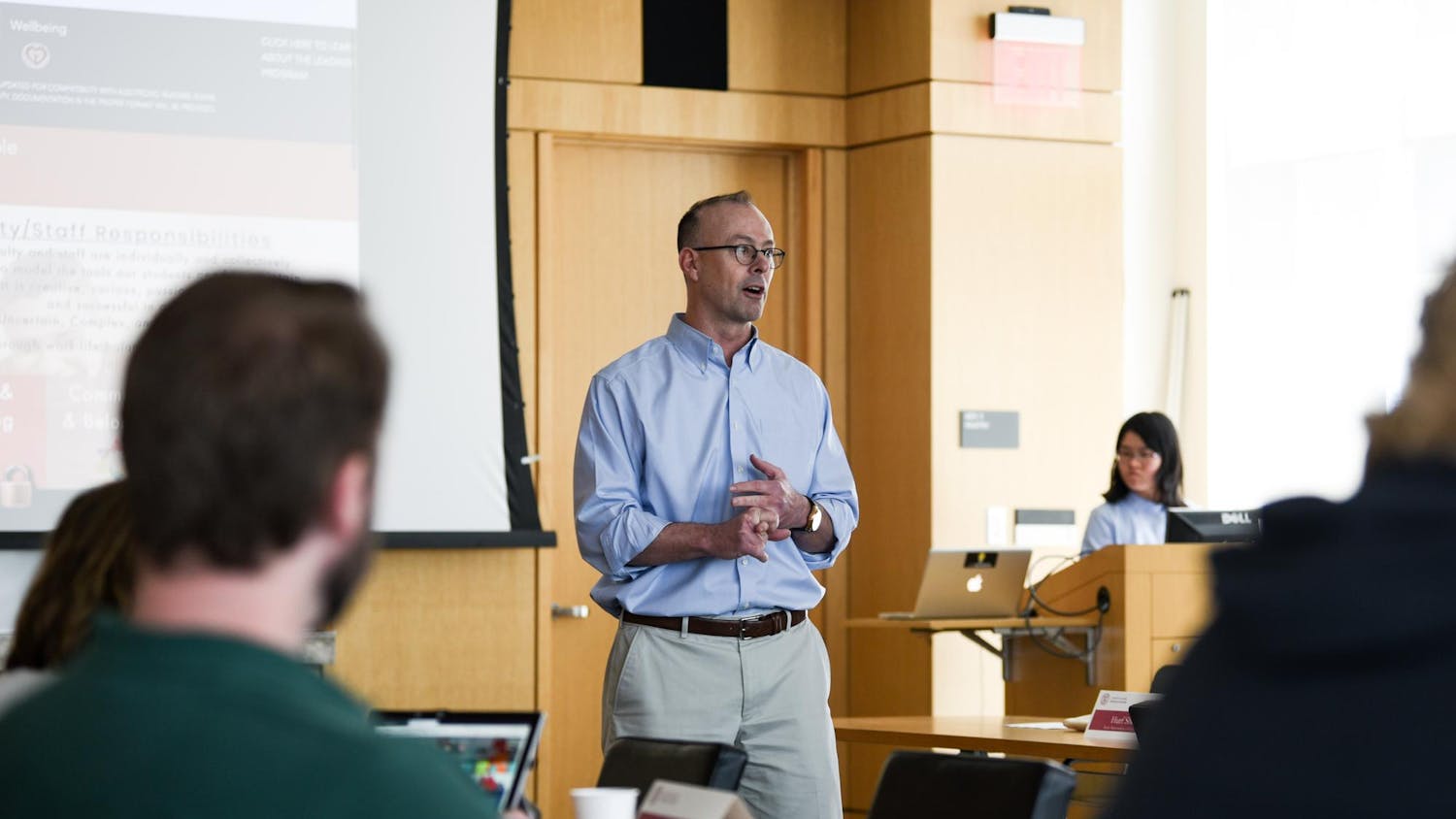On June 24, an executive order issued by President Trump that significantly curtails the issuance of new employment-based visas went into effect — sparking a wave of concern among graduates, new hires and students that their opportunities in the United States may now be in limbo.
Citing “an unusual threat to the employment of American workers,” the order strictly limits a variety of visas companies use to hire foreign employees until the end of the year. Among the most directly affected are H1-B temporary workers, typically high-skilled individuals often hired in healthcare, STEM and tech industries.
Prof. Kelley-Widmer said the “unusual threat” refers to the perception that immigrant workers might be hired into positions that would otherwise be filled by domestic workers during a period of historically high rate unemployment in the U.S.
Although close to 200,000 workers are granted employment-based visas every year, Kelley-Widmer said Trump’s measure is likely counter-productive, sapping the economy of highly qualified talent when it may be needed the most.
“However, in fact, unemployment is low for occupations that use many H-1B visas, and these visas help fill gaps especially in STEM fields,” Prof. Jaclyn Kelley-Widmer wrote to the Sun. “Further, there is strong evidence that re-opening the economy successfully will actually require temporary foreign workers with specific skills who are typically present on these visas.”
As prominent companies, such as Google and Twitter, have slammed the move, Cornell’s international students expressed fears that the latest visa restrictions could dampen hopes of entering the American job market.
Although Hassaan Bin Sabir ’21, government and history, does not plan on joining the workforce in the U.S., he called the current situation “unsettling” for his friends “who have progressively worked towards landing a job in the U.S. for the last three years.”
“They're just stuck in limbo,” he said.
International students can use Curricular Practical Training or Optional Practical Training, immigration programs that authorize those enrolled in college to work, though typically for no longer than a year. As a result, students looking for longer-term employment must seek H-1B visas companies — for the time being — are now unable to grant.
Kelley-Widmer described the impact on academic institutions as major even though the immigration ban exempts students, “because many new hires plan to enter on an H-1B visa in the fall.”
The proclamation states that immigrants outside of the U.S. on the effective date, as well as those who do not have a valid nonimmigrant visa that is valid as of June 24 face risk of suspension and limitation of entry.
This negatively impacts recent graduates currently outside of the U.S. who possess H1-B visas, as they will be restricted from entering or working in the U.S. until the proclamation ends December 31, if not extended by the U.S administration.
Although the proclamation was instituted through the Immigration and Nationality Act on a national level, it may be challenged as “going beyond the scope of authority granted in the INA because the restriction is so broad and not based on foreign policy concerns, as previous travel bans have been,” Kelley-Widmer told the Sun.
The executive order is the latest in a series of moves the Trump administration has made to curb immigration — drawing concerns among international communities who look to the futures they have been establishing for themselves, susceptible to curveballs and further restrictions.
Even though Bee Chen ’23, a hotel administration major, was not directly affected by the executive order, he said he was “worried for the future.” As a non–U.S. citizen, finding internships has been difficult, especially due to pandemic. Instead, he has been “trying to improvise and get independent projects,” as well as develop work skills that he can learn online.
The restrictions have posed anxiety for Chen’s peers — with one International Students Union eboard member expressing concern about being unable to change their current temporary work authorization, CPT, into a longer term H1-B visa for future employment.
“It adds on to the limitations of international students because you already have to navigate so many things,” Chen said.
When asked about the support he received from the administration, Chen discussed his interactions with the advisors. “When talking with career advisors they seem really concerned and expressed how they’re communicating with the Office of Global learning closely to monitor what is happening,” he said.
Although an uptick in demands from the student community have arisen in the past weeks, Bin Sabir believes that frustration towards the institution in regard to the University’s response to the international community is “slightly misplaced.”
Instead, he believes the frustration should be directed towards the current U.S. administration due to the limited power of the University in comparison to policy.
“It’s important to put things into perspective as to where anger should be directed towards this,” he said. “I think what other Cornell students who are American can do to help out other international students at this point is honestly just to vote in November and get Trump out of office because that’s the only way these policies are going to be reversed.”
Bin Sabir highlighted the Office of Global Learning’s prompt communication of information and resources concerning COVID-19, immigration and the current administration.
“We want you to know that we firmly believe that an international community is essential to educating the brightest, solving critical global problems, reducing international tension and facilitating empathy and leadership across nations,” Cornell administration recently wrote in an email to its international students, faculty and staff.
Bin Sabir did, however, discuss the ways in which the University could better support the international community during a time of uncertainty. He specifically expressed concern about Cornell’s need-aware financial aid policy for international students, which often prohibits them from applying for tuition assistance after they are initially admitted.
“That’s where anger should be directed at the administration,” Bin Sabir said, referencing the negative financial impact coronavirus fallout has had on the international community.
After three years of ups and downs with the current U.S. administration, including a Muslim ban which did not include his home country, Pakistan, but severely concerned Bin Sabir, he hopes for more security in the future for international students.
“We would really appreciate more certainty," he said.
Correction, June 26, 2:04 p.m.: A previous version of this article missed part of a quote made by Prof. Jaclyn Kelley-Widmer. The article has since been updated.

Rising Restrictions Raise Concern for Cornell's International Community
Reading time: about 6 minutes
Read More










